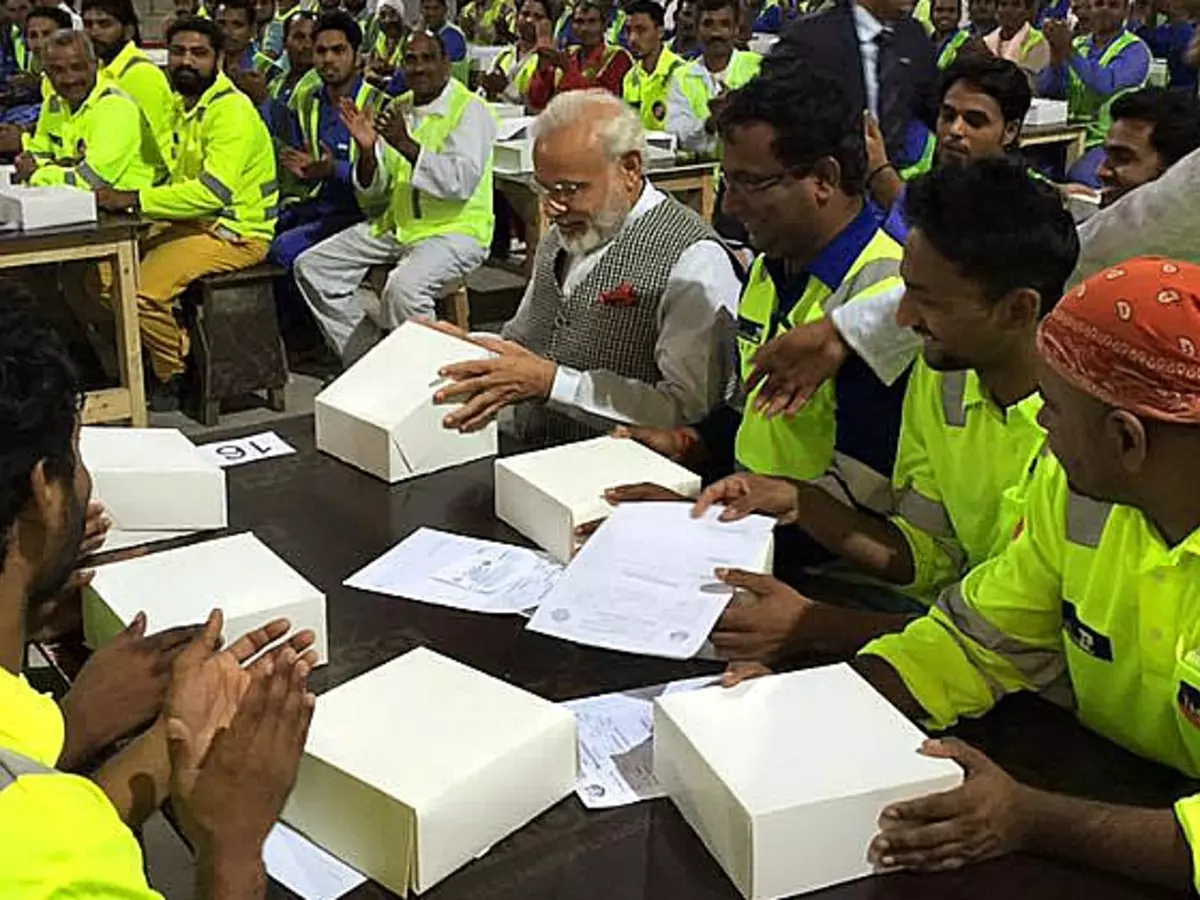Modi Becomes 1st Indian PM To Visit Workers In Qatar, But Fixing Their Condition Will Take More Than Just Packed Lunches
While Indian PM Narendra Modi has told workers that he will address their work and life conditions in Qatar, India has known about atrocities they have borne for over two years with zero action.

In one of the few photos posted from his ongoing Qatar trip, Prime Minister Narendra Modi was seen breaking bread with workers in Qatar.
He assured them he will take up problems faced by them during his talks with leaders of this Gulf nation.
1,000 Indian Workers Dead. The Grim Reality Of Qatar's FIFA World Cup Dream
"I am aware of the issues you are facing"
PM Narendra Modi interacts and shares a meal with Indian workers in Doha (Qatar) #ModiInQatar pic.twitter.com/P0gGbDbv0i
¡ª ANI (@ANI_news) June 4, 2016
Addressing Indian workers at a medical camp in downtown Doha, Modi said he is aware of the issues being faced by Indian workers and the companies that bring them here. "I am aware of the issues you are facing. I will talk about it when I meet the authorities," he said. Qatar is home to over six lakh people of Indian origin. Modi also interacted with workers after his brief address and shared refreshments with them. He shook hands with several workers during his 30-minute stay at the camp.
However, these issues aren't a recent phenomenon
Workers in Qatar renovating a 2022 World Cup stadium have suffered human rights abuses two years after the tournament's organisers drafted worker welfare standards in the wake of criticism, Amnesty International said. Dozens of construction workers from Nepal and India were charged recruitment fees by agents in their home countries, housed in squalid accommodation and barred from leaving the country by employers in Qatar who confiscated their passports, Amnesty said in a report released on Thursday.
The alleged ill treatment of workers on a high-profile project raises questions about recent reforms in the country that has said it will improve foreign workforce conditions.
Since winning the World Cup in 2010, Qatar has spent tens of billions of dollars on a new port, metro system and airport. Hundreds of thousands of south Asians were recruited and they account for 94 percent of the 2.1 million population. Following persistent criticism from rights groups of its 'Kefala' sponsorship laws, Qatar last year introduced electronic payment of salaries and created an appeal process for workers if employers do not sanction their leaving the country.








